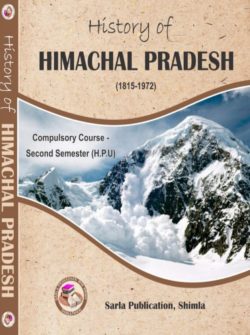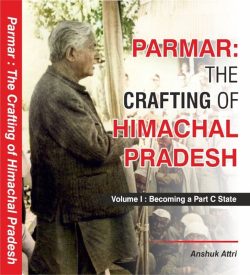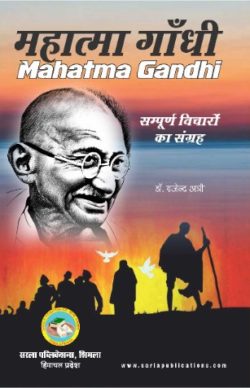Description
Contains:
1. EARLY LIFE ……………………………………………………………… 1-27
Education
Life as an English Gentleman
Birth of a Leader
Gandhi’s Arrival in India
Transvaal Condition
Influence of John Ruskin Writing
Gandhi’s vows to Brahmacharaya
Asiatic Law Amendment Ordinance
The First Satyagraha and its Success
Gokhale’s visit and Withdrawal of Black Act
2. GANDHI’S ARRIVAL IN INDIA ………………………………… 28-4
Satyagraha Ashram, Ahmedabad
First Satyagraha experiment in India
War Conference
Jallianwalla Bagh
Calling Civil Disobedience a Himalayan Blunder
Boycott of Hunter Committee
Gandhi’s Leadership
Gandhi’s Fast
3. VARIOUS MOVEMENTS ………………………………………… 43-54
Gandhi as a Mass Leader
Diminishing Popularity of Gandhiji
All Parties Conference
Nehru Report
Civil Disobedience
Eleven Points
4. SECOND PHASE OF MOVEMENTS ……………………… 55-73
Dandi March
The Gandhi-Irwin Pact
Poona Pact
Retirement From Congress
Difference over World War-II
{iii}
5. GANDHI’S LEADERSHIP ……………………………………….. 74-90
‘Do or Die’ Mantra
The Cabinet Mission
Rajaji Formula
Simla Conference
Interim Government Formula
Politician to Saint
Partition Plan
6. TOWARDS FREEDOM ……………………………………………. 91-94
Independence
Gandhi’s Helplessness
7. GANDHI’S SOCIAL PHILOSOPHY ………………………. 95-111
Love for Truth
What is Truth?
Non-Violence means Love
Travesty of Non-Violence
Critique of Violence
The Ends and the Means
Faith in Moksha
Gandhi’s Sarvodaya
Concept of Trusteeship
Varna Dharma Concept
8. GANDHI’S IDEAS OF A
PLANNED SOCIETY …………………………………………… 112-117
Village Reconstruction
Eradication of Untouchability
Gandhi’s Moral Philosophy
Swadeshi and Swarajya
Sarvodaya
9. NON-VIOLENCE …………………………………………………. 118-125
Non-Violence in Economic, Political and Social Fields
Gandhi and Force
{iv}
10. GANDHI AND SOCIALISM …………………………………. 126-130
Gandhian Socialism
Sarvodaya Samaj
Gandhi the Utopian
Gandhian Socialism Vs World Socialism
11. GANDHIAN PHILOSOPHY OF EDUCATION …….. 131-139
Gandhi’s Ideas on Education
Craft- Centred Education
Gandhi’s Aims of Education
Message to Students
Gandhi’s Programme of Education
12. GANDHI’S PHILOSOPHY OF SATYAGRAHA ……. 140-152
Gandhi’s Experiments: The Salt Satyagraha
Faith in Truth
Qualities of A Satyagrahi
Satyagraha: A Weapon to Counter Evil
Satyagraha is not Cowardice
Strength of Satyagraha
Satyagraha Principle
Dictates of God
13. RELIGION AND POLITICS…………………………………. 153-157
No Religious Movements without Politics
Purity in Politics is Essential
Politics is for the liberation of the Country
Moral Courage is essential in Politics
Secrecy has no Place in Politics
14. THE ECONOMIC PHILOSOPHY OF GANDHI …… 158-161
Background of Gandhian Economic Thought
The Economic Structure of Gandhian State
15. THEORY OF TRUSTEESHIP ………………………………. 162-164
Non-Possession and Non-Stealing
Bread Labour
Gandhi on Decentralisation of Industries
{v}
16. GANDHI ON FAMILY PLANNING ……………………… 165-167
Late Marriages
Brahmacharya
Ashram Vyavastha
17. GANDHI AND MARX AS
POLITICAL PHILOSPHERS ……………………………….. 168-173
Gandhi was a Philosohical Anarchist
Gandhi as a Moralist
18. ENDS AND MEANS ……………………………………………… 174-180
Inner Values Strength
Did Gandhi fail
Gandhi as a Law-abiding Citizen
Truth and Non-Violence
Second Best State
Gandhian Swaraj
19. IDEAL STATE ………………………………………………………. 181-184
Supporter of Universal Franchise
Emphasis on Duties
Gandhi and Hinduism
Right and Duty
Gandhi’s Love for Hinduism
Gandhi’s Doctrine of Self-Reliance
20. SPIRITUAL INTERPRETATION OF HISTORY…… 185-191
Importance of Religion
Voluntary Suffering
Inner Voice
God both Law and Law Giver
God is Perfection
God and Evil
Uncontrollable Optimision
MULTIPLE CHOICE QUESTIONS
Also available on:
![Gandhian Thoughts - English [Ebook]](https://sarlapublications.com/wp-content/uploads/2018/11/Gandhian-Thoughts.jpeg)






![हिमाचल पर्देश का भूगोल - Himachal Pradesh ka Bhugol [Hindi]](https://sarlapublications.com/wp-content/uploads/2019/10/HP_ka_Bhugol_Title-250x322.jpeg)